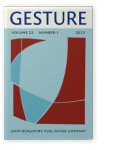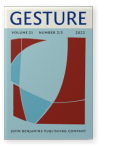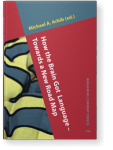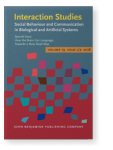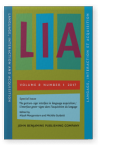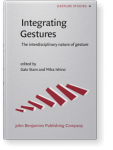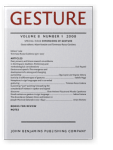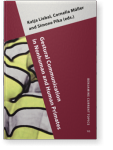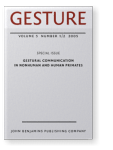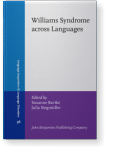Olga Capirci
List of John Benjamins publications for which Olga Capirci plays a role.
Articles
2023 The road to language through gesture: The longitudinal case of parent-child interactions in deaf children Gesture 22:1, pp. 39–61 | Article
This study explores the role of gestures in Flemish Sign Language (VGT) development through a longitudinal observation of three deaf children’s early interactions. These children were followed over a period of one and a half year, at the ages of 6, 9, 12, 18 and 24 months. This research compares… read more
2022 Searching for the roots of signs in children’s early gestures Gesture 21:2/3, pp. 201–238 | Article
A consolidated tendency considers ‘gestures’ and ‘signs’ as distinct categories separated by a ‘cataclysmic break’. According to a different approach, gestures and signs have their common origin in actions, and are considered as part of language. The aim of this study was to compare the… read more
2020 From action to spoken and signed language through gesture: Some basic developmental issues for a discussion on the evolution of the human language-ready brain How the Brain Got Language – Towards a New Road Map, Arbib, Michael A. (ed.), pp. 216–238 | Chapter
We review major developmental evidence on the continuity from action to gesture to word and sign in human children, highlighting the important role of caregivers in the development of multimodal communication. In particular, the basic issues considered here and contributing to the current debate… read more
2018 From action to spoken and signed language through gesture: Some basic developmental issues for a discussion on the evolution of the human language-ready brain How the Brain Got Language: Towards a New Road Map, Arbib, Michael A. (ed.), pp. 216–238 | Article
We review major developmental evidence on the continuity from action to gesture to word and sign in human children, highlighting the important role of caregivers in the development of multimodal communication. In particular, the basic issues considered here and contributing to the current debate… read more
2017 Developmental evidence for continuity from action to gesture to sign/word The gesture–sign interface in language acquisition / L’interface geste–signe dans l’acquisition du langage, Morgenstern, Aliyah and Michèle Guidetti (eds.), pp. 13–41 | Article
What is linguistic communication and what is it not? Even if we often convey meanings through visible bodily actions, these are rarely considered part of human language. However, co-verbal gestures have compositional structure and semantic significance, while highly iconic structures are… read more
2011 Chapter 14. Learning to use gesture in narratives: Developmental trends in formal and semantic gesture competence Integrating Gestures: The interdisciplinary nature of gesture, Stam, Gale and Mika Ishino (eds.), pp. 187–200 | Chapter
This study analyses the way in which children develop their competence in the formal and semantic aspects of gesture. The analysis is focused upon the use of representational gestures in a narrative context. A group of 30 Italian children from 4 to 10 years was videotaped while telling a video… read more
2008 Gesture and speech: The emergence and development of a strong and changing partnership Dimensions of gesture, Kendon, Adam † and Tommaso Russo Cardona (eds.), pp. 22–44 | Article
The present paper focuses on early stages of development exploring the emergence of the gesture language system in infancy and its evolution toward the adult system. Old and recent studies carried on mainly in our Laboratory are described and discussed.
According to the perspective that emerged… read more
2007 From action to language through gesture: A longitudinal perspective Gestural Communication in Nonhuman and Human Primates, Liebal, Katja, Cornelia Müller and Simone Pika (eds.), pp. 139–159 | Article
The present study reports empirical longitudinal data on the early stages of language development. The main hypothesis is that the output systems of speech and gesture may draw on underlying brain mechanisms common to both language and motor functions. We analyze the spontaneous interaction with… read more
2005 From action to language through gesture: A longitudinal perspective Gestural Communication in Nonhuman and Human Primates, Liebal, Katja, Cornelia Müller and Simone Pika (eds.), pp. 155–177 | Article
The present study reports empirical longitudinal data on the early stages of language development. The main hypothesis is that the output systems of speech and gesture may draw on underlying brain mechanisms common to both language and motor functions. We analyze the spontaneous interaction with… read more
2004 Language in preschool Italian children withWilliams and Down syndromes Williams Syndrome across Languages, Bartke, Susanne and Julia Siegmüller (eds.), pp. 163–186 | Article
